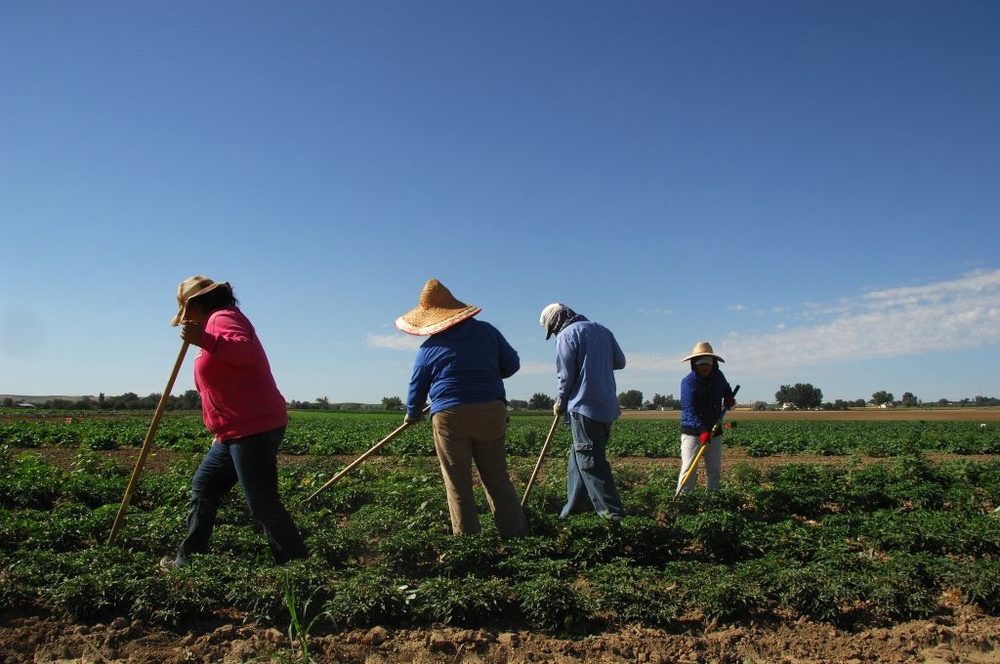Wednesday, August 25
3:00 – 4:00 p.m. ET
It is estimated that there are currently 2.5 to 3 million farmworkers in the United States. While farm work is sometimes described as “low-skill” or “no skill,” the nature of this occupation requires dexterity, speed, skill, endurance, and mental acuity. Agriculture is also one of the most hazardous industries in the U.S.
Farmworker mental/behavioral health is closely intertwined with multiple, simultaneously contributing variables, including those related to occupational/workplace factors, culture, and interpersonal relationships.
This webinar will explore sources of stress among migrant/seasonal farmworkers and provide information and resources for assisting this population. Some topics include the following:
- The impact of musculoskeletal disorders on farmworker mental/ behavioral health
- Workplace psychosocial and environmental risks impacting farmworker mental/behavioral health
- Cultural norms/values and cultural concepts of mental health as factors in the under-use of mental/behavioral health services
- The contribution of social and cultural isolation to higher levels of stress in farmworker populations
- Effects of limited access to culturally appropriate mental/behavioral health services and limited understanding of mental health and stress
- Challenges in balancing work and family responsibilities due to long hours and separation from family and loved ones
- Solutions and resources to reach and assist farmworkers experiencing psychological stress and anxiety, including teaching coping skills and training service providers on culturally affirming approach to mental health
Our Presenters:
Esmeralda Mandujano has ten years’ experience in occupational safety with an emphasis on prevention of secondary injuries in agriculture. She is the program manager for California AgrAbility at the University of California, Davis, providing direct assistance to farmers and farmworkers with disabilities, injuries, and illnesses to help them continue to work safely. Esmeralda focuses on networking and outreach for California AgrAbility as a core strategy to support program participant goals. Her mission is to support farmers and farmworkers to take care of their minds and bodies, their most valuable work tools. Esmeralda received her undergraduate education in psychology from UC Davis and earned a master’s in public health from the UC Davis School of Medicine.
Kimber J. Nicoletti-Martinez, LCSW, is the founder and director of Multicultural Efforts to End Sexual Assault (MESA) at Purdue University. She has been an advocate for Latinx immigrant and farm worker communities for more than 25 years. Ms. Nicoletti-Martinez was named National Social Worker of the Year by the National Association of Social Workers in 2018, and awarded the 2017 Indiana Social Worker of the Year. In addition to her role with the MESA program, she will serve as Latino outreach coordinator for both the National and Indiana AgrAbility projects beginning August 1, 2021. Ms. Nicoletti-Martinez serves on the Clinical Advisory Council for the Healing Voices farm worker mental health Initiative at Justice for Migrant Women. She is a licensed clinical social worker in Indiana where completed a B.A. (‘96) in sociology at Purdue University and completed her master degree (‘98) in social work at Indiana University.
A question & answer period will follow the presentation.
To participate in this free webinar, click here to access the online registration form by Monday, August 23. Instructions for accessing the session will be sent to registrants by Tuesday, August 24. Please pass on this invitation to others you believe may be interested. Contact AgrAbility at 800-825-4264 or email agrability@agrability.org if you have questions.
The North Central Farm and Ranch Stress Assistance Center is supported by USDA-NIFA Project 2020-70028-32728. The National AgrAbility Project is supported by AgrAbility Project, USDA/NIFA Special Project 2016-41590-25880.


Comments (1)